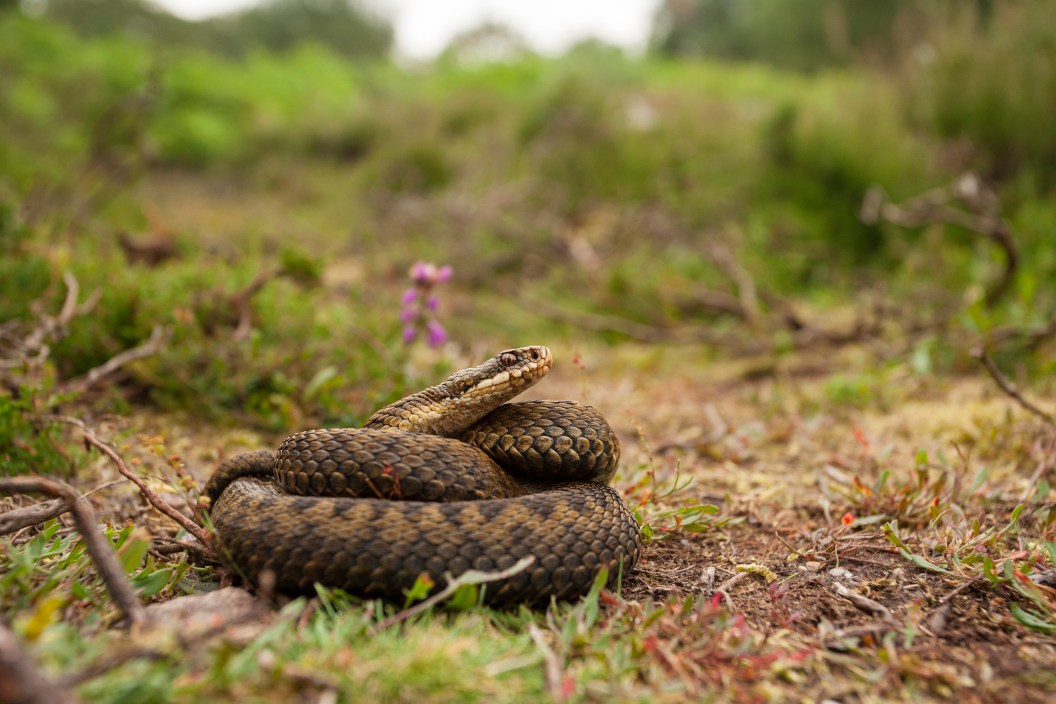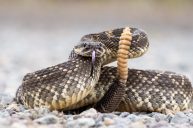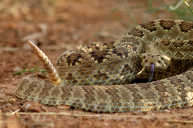Many people get the heebie-jeebies when they encounter a snake. It's likely something hard-wired instinctively by an ancient ancestor who was the first to succumb to a venomous snakebite. Thousands of generations later, that fear is still valid, but many times we can get away from the snake without having to resort to violence.
According to the Centers for Disease Control and Prevention, about 7,000 to 8,000 people are bitten by venomous snakes in the United States every year. Of that bunch, only about five people die from a bite. You're at much greater risk of dying of a heart attack or in a car accident.
Of course, sometimes it is hard to avoid or even necessary to kill snakes in the wild. In the Florida Everglades, for instance, invasive pythons are so prevalent they disrupt the natural ecosystem. And we'll be the first to say if you find a venomous reptile under your kid's swing in the backyard, you should have it removed. But for the sake of this article, we're talking about native snakes that you might encounter while out on a hike. Snakes are a vital part of the outdoor spaces most of us enjoy spending so much time in. Here are four of the more surprising reasons not to kill snakes.
1. Snake Venom Has Led to Serious Medical Advancements
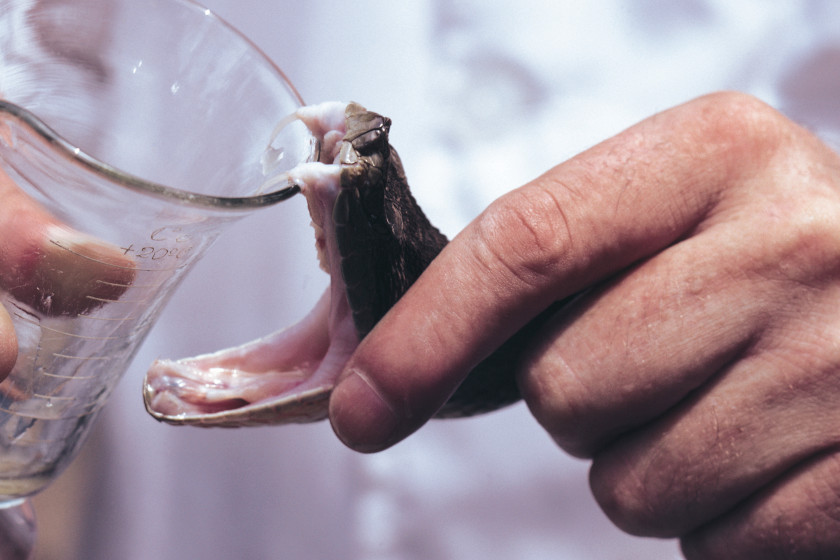
Getty Images, John Foxx
Plenty of dangerous species of snakes emit venom that can cause great pain, suffering, and even death, such as the black mamba. However, snake venom also contains many complex elements that, once separated, doctors can use to treat many different ailments, thus prolonging the life of humans who may have died from preventable diseases.
One prime example, according to the BBC, is the venom of Bathrops jaraca, a pit viper native to South America. From this snake's potent venom, scientists were able to develop drugs to treat coronary problems like high blood pressure and even heart attack. In another example, snake venom is being studied as a cancer treatment, per the National Library of Medicine. More specifically, researchers are finding the proteins and enzymes from snake venom may bind to and even destroy cancerous tumor cells. Who would have thought?
More research needs to be done to unlock to the true benefits of snake venom as a medical treatment, but the potential of snake venom looks promising. There's a bit of irony in one of nature's most feared creatures possibly being the solution to end one of humanity's most feared diseases.
2. Snakes Kill a Ton of Pests to Humans
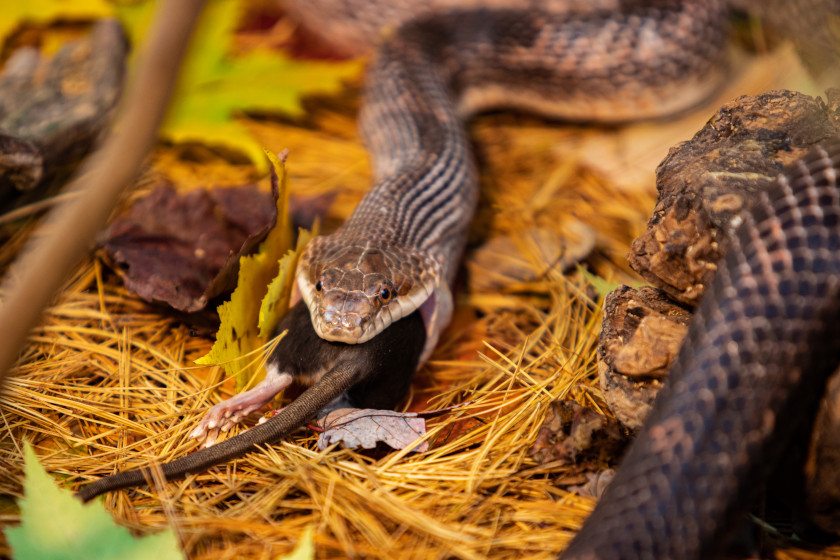
Getty Images, Valmedia
A healthy population of snakes helps keep rats and mice in check in areas where they might otherwise be overrun. For homeowners, that means less rodents in the home, and for farmers, it's fewer pests raiding grain storage or taking up home in barns where they could spread disease to domestic livestock or pets.
And it's not just threats by the mice themselves that snakes inadvertently affect, either. According to tick expert Dan Wolff, younger ticks start their lives by feeding primarily on mice and rats. This is also where nymph-stage ticks usually pick up the bacteria that causes things like Lyme disease. As a result, places with more of a rodent problem also often have more cases of tick-borne illness. If you regularly kill all the snakes on your land, you inadvertently increase the chances you might catching one of those nasty tick-borne diseases.
3. Getting Bitten Can Yield a Hefty Hospital Bill
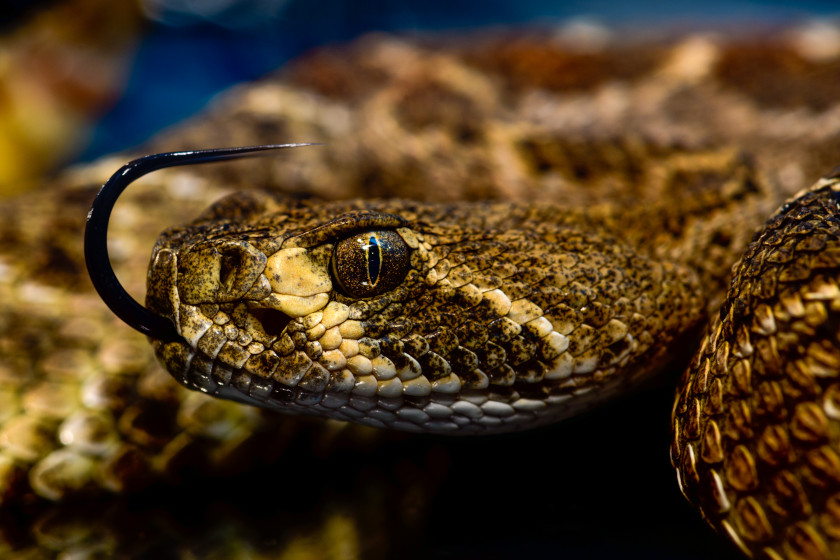
Getty Images, JWJarett
If you need another reason to stay clear of snakes, think about your finances. Beyond the pain of the actual snake bite, a snack bite can leave the victim with a lofty debt, as the necessary antivenin can be insanely expensive. In at least one case, a rattlesnake victim received a six-figure hospital bill. That guy was bitten while trying to take a selfie with the serpent. We're guessing after his injury he wished he'd just left the animal alone.
4. Snakes are Food for Other Predators

Getty Images, M. Leonard Photography
Snakes serve another purpose on the food chain beyond their role as predator. They also provide a tasty dinner to other species further up the chain, such as badgers, coyotes, raccoons, fox, bald eagles, hawks, falcons, and owls. Even wild turkeys will sometimes kill and eat rattlesnakes if the opportunity comes along. Unless there's a good reason to remove a snake from the food chain, such as an over-population in the area, you're likely just upsetting the natural food web of your area.
